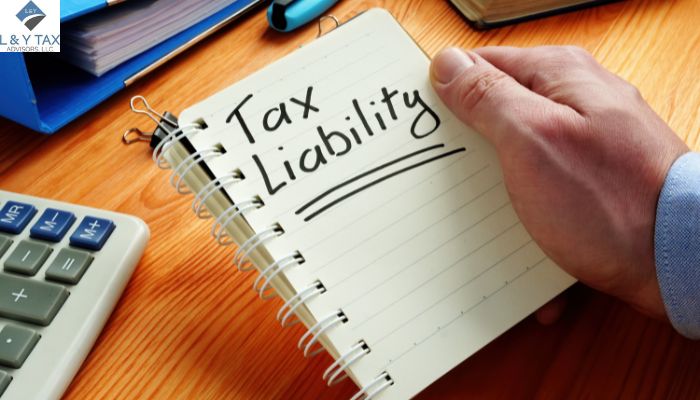
Personal Tax Planning
The need for personal tax planning might get you overwhelmed while conjuring up audit scenarios that many of you visualize as perplexing or dreadful situations. Involving a labyrinth of laws and regulations, which are subject to regular or annual variations, along with multiple forms and limitless mumbo-jumbo, demands a professional consultant proficient in deciphering them and mapping out effective personal tax planning strategies.
Tax or financial advisors and consultants plan tax planning tips for individuals that substantially minimize the burden of tax liabilities and provide different investment opportunities. These tips ultimately assist in securing a sustainable and consistently growing financial future.
Click here to read about ‘core tax and financial advisors.’
Tax Credits vs. Tax Deductions
Understanding the difference between tax credits and tax deductions is vital so you can participate in developing strategies for individual tax planning because it is one of the best parts of preparing a tax return.
Field professionals offer diverse tax planning services for individuals and businesses alike. You can hire your trusted advisors, concerning the type of services you’re willing to avail, to pave the path of financial progressions and save yourself from the likelihood of penalties.
Like equalized financial exchange or the concept of ‘an eye for an eye,’ tax credits give you a dollar-for-a-dollar reduction in your bill. For instance, a tax credit valued at $1000 minimizes your tax bill by $1000. On the other hand, tax deductions are specific expenses that you can subtract from your taxable income. They decrease how much of your income is subject to taxes.
Click here to read about small business CPA services.
Understanding Standard Deduction and Itemizing
Deciding whether to take the standard deduction or itemize is a significant part of tax planning because your choice significantly impacts your tax bill. Standard deduction doesn’t involve questioning; it is a flat dollar. Taking them fastens the process of individual tax planning services, which is one of the main reasons taxpayers prefer this method instead of opting for itemizing.
Every year, the number of standard deductions is adjusted concerning inflation chances. Your qualification status for these deductions depends on the filing status, which is distinguished based on your marital or living status – single, married and filing jointly, married and filing separately, and head of the household.

Personal Tax Planning
The scheme of actions for personal tax planning processes is an efficient way of structuring your finances, aiming to minimize tax liabilities. Simply put, it is the art of understanding the tax implications of your monetary preferences so you can make well-informed decisions.
Successful personal tax planning is achieved through different methods, including eligible credits and deductions, enhancing the sources of income, and opting for investment plans that offer advantageous taxes.
The following components are beneficial to map out and have a good grasp of tax obligations:
1. Understanding Your Tax Bracket
Your monthly income determines your specific tax bracket, which dictates the percentage of your salary you owe in taxes. You can anticipate your tax liability to make strategic decisions, such as the need to defer income or accelerate deductions.
2. Credits and Deductions
Understanding the difference between tax credits and deductions is essential to schedule personal tax planning to save at maximum and minimize the payable amount to the official authorities.
3. Income Shifting
Shifting your income is potent if your family members have varied income brackets. Transferring your income to members with lower brackets enables you to capitalize on their lower tax rates. Indeed, it is subject to gift tax rules and other regulations.
4. Investment Planning
Capital gains from investments are subject to tax. However, the rate is usually less than that on the regular income if held for over a year. Understanding tax implications is mandatory to sell investments and plan your buying or selling strategies accordingly.
Click here to read about business tax planning strategies.
5. Retirement Planning
Retirement accounts, such as 401(k) and individual retirement accounts (IRA), are often tax-deductible. Assure maximum permissible contribution in these accounts to avail the advantages of these benefits.
6. Professional Guidance
It is recommended to seek professional guidance, regardless of the simplicity or complexity of the financial matter. Doing so helps you follow a customized and tailored strategy for easing the navigation process beyond the scope of general advice.
What are the variables in tax planning?
Tax planning refers to an approach used by individuals or businesses to organize their finances so as to legally reduce tax liabilities, while meeting legal compliance. Acknowledging its many variables is vital in creating strategies which meet financial goals while adhering to tax laws.
Tax planning comprises several key components. Here are the primary ones:
Income: Income taxes differ based on its source and timing; earned, investment and passive income are treated differently and need to be declared when declaring tax return information.
Deductions and Credits: Deductions reduce taxable income while credits directly lower tax liability; examples include personal deductions, business expenses and specific activities or investments that qualify for tax credits.
Filing Status: An individual’s tax liability depends heavily upon his/her filing status: single, married filing jointly (MFJ), married filing separately or head of household.
Investments: Depending on the nature and period of an investment – for instance stocks, bonds or real estate purchases and holds – its tax consequences could differ dramatically.
Contributing to retirement accounts such as 401(k)s or IRAs may offer tax advantages that impact both current tax liabilities and long-term retirement income.
Estate Planning: Proper estate planning can reduce estate taxes while assuring smooth wealth transfer to beneficiaries.
L&Y Tax Advisor specializes in developing tailored tax planning strategies that take these variables and more into account. Our team of tax experts helps clients navigate complex tax laws to optimize savings and achieve financial objectives more easily. By understanding and controlling these variables, individuals and businesses alike can make informed decisions to reduce tax liabilities more efficiently.
Final Wrap Up
Personal tax planning isn’t a one-time activity but rather a year-round affair, with the additional confusion of tackling the variations of tax laws. The foremost or prerequisite strategy is to equip your financial situation with the professional services of an experienced consultant to make tax planning a year-round endeavor. Remember that a penny saved in taxation equals earning the same amount. With the correct guidance and meticulous preparation, it becomes easy to untangle the regulations, which are well worth the effort.


